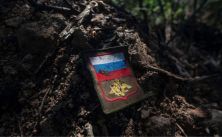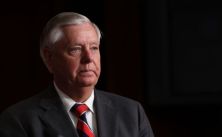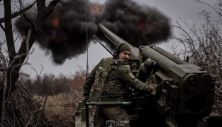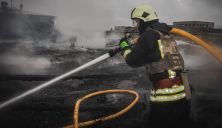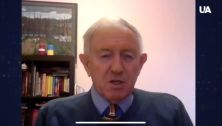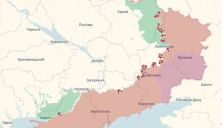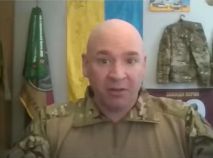In December 2013, David Satter became the first American journalist to be expelled from Russia since the Cold War. Satter is known in Russia for having written that the apartment bombings in 1999, which were blamed on Chechens and brought Putin to power, were actually carried out by the Russian FSB security police. What threats and dangers are we facing now from Putin`s Russia, and what should we expect next? we are honored to discuss this issue with David Satter, author of the book “The Less You Know, The Better You Sleep: Russia’s Road To Terror And Dictatorship Under Yeltsin And Putin”.
You have written about Russia and the Soviet Union for about four decades. Vladimir Putin came to power only 20 years ago, and for several years in a row now the press does not possess any precise information about who Vladimir Putin is. You know Vladimir Putin better than anybody, so could you enlighten us?
Well, I’ve never met the man. But I think we can judge by his actions. One action, in particular, I think, pretty much sums it up.
Which one?
That was in 2004, when Putin, and it could have only been Putin, gave the order to open fire on the school in Beslan, where parents and children were held hostage, with flamethrowers and grenade launchers. The result was 300, actually, more than 300 hostages were killed, most of them burned alive. Well, who can give such an order? And for what reason?
Right, that’s what I wanted to ask you. What could be the reason behind such a decision, behind such an order? Is it power, is in the lust for power? It couldn’t be.
This is someone, for whom, I think, the lives of the hostages have absolutely no meaning, just as the lives of the passengers onboard the Malaysian airliner that was shot down over Eastern Ukraine had no meaning. What was important was his own power, and in the interests of that power, he’ll do practically anything. And this began with the month before he was elected President, in fact, so-called elected, with the bombing of the apartment buildings in Russia. People asked the question “Who is Mr. Putin?” over and over again in the West, in the United States, and then they offer answers that are based on the American experience, but the answer to that question is actually fairly obvious. It’s a person for whom moral values just don’t exist when it’s a question of holding onto power, gaining power, increasing power.
In the long run, is his ultimate goal to possess power over the whole world?
I don’t think so. I think it’s just to rob Russia. I think there’s a small group of people in Russia who are determined to monopolize power, and property, and wealth. You know, there’s only so much wealth that a single person can control, and Russia provides more than enough for him. But the reason why Russia behaves so aggressively, and aggressively towards Ukraine…
Not only Ukraine, but there’s also Georgia!
But of course, there’re many examples, in fact, but the reason for this type of behavior is that war is an instrument of internal policy, it’s a way of consolidating control, it’s a way of convincing the Russian population that they have enemies and that they should rally around their corrupt leadership.
And unite in patriotism, trying to defend their country, right?
Yes.
Ok, let us touch upon, a little bit, on the MH-17 crash. I know that you are involved in the investigation process. So, are there any results that you can talk about concerning that case?
Well, I’m an expert witness in the case that’s been filed in the European Court of Human Rights against Russia and against Putin personally by the relatives of those who were killed onboard the plane. And at the present time documents have been filed in the court, the complaint has been filed, the supporting testimony has been filed, and Russia was due in early September to respond. They gave a very disrespectful and inappropriate response to the court, and the court, instead of penalizing them and insisting that they follow the rules, giving them more time to answer, so now Russia has until December to respond.
Why so? Why the court has not penalized Russia for, well, actually breaking the law? Are they afraid of Putin?
I think this is something that we see over and over again in relation to Russia.
Right, being reinstated in PACE.
Yes, of course, but I think that what we see is that Western powers think that it’s best to tread carefully with Russia, that it’s important not to offend Russia, not to offend Putin. Perhaps there’s a fear that if they offend him they’ll provoke him to even greater aggression, but in fact, the mere fact that they are not willing to enforce the rules, and not willing to stand up is an invitation to aggression. And this is something that we’ve seen in a lot of different situations. We’ve seen it in the relations between Russia and Ukraine.
That looks like an echo of the Soviet Union, when most of the countries in the world were kind of afraid of the Soviet Union, because it was a great union, and it possessed atomic power. How deep is the Soviet Union past correlated into the countries that used to be part of the Soviet Union, meaning Russia, Ukraine, Baltic states?
Well, those countries are all different, the Baltics are different, Ukraine is different, Russia is different, but the effect of the Communist period on people was to destroy the sense of right and wrong, to destroy the sense of respect for the law. And most important, I think, was the idea that the individual is valuable, and that he’s a moral actor, and that he’s responsible for his behavior, that he, individually, should accept responsibility for his own freely taken actions. You know, in the Soviet Union the individual didn’t have to think about anything, because everything was decided by the government.
The Party.
Yes, absolutely, and at the same time, the government relieved individuals, ordinary people, of responsibility. As long as you were doing what you were told to do by the government no one would ever raise the question of whether what you did was moral or immoral, whether it was legal or illegal. So, under those circumstances, of course, we’re talking about Ukraine, we’re talking about a country that was under the Soviet system for more than 70 years, and that’s several generations, that had its effect on people. Now we have free institutions, in Ukraine, we have free elections, we have a free press. In Russia, we don’t have those things, so, of course, the situation in Russia is much, much worse. The Baltics were part of the Soviet Union for a somewhat shorter period of time, so they had their own experience, which was different.
Well, as you said, Ukraine is freer now. We do have open transparent free elections, now we have the new government. All eyes are on the new government of Ukraine. The citizens of Kyiv, the Ukrainians, are expecting the new government to come up with an effective way to end the war. That’s been eating up the country for five years.
In order to do so, Ukraine is in deep need of international partners, their support like the European Union and the United States of America. Now concerning the political relations of Ukraine and the United States of America, there is a lot of controversy around it, especially around the last phone conversation between President Trump and President Zelensky. Could you comment?
It’s a dangerous subject, but I think that there is still a certain amount we don’t know. I mean claiming to think that what President Trump did was inappropriate. Because, if there’s an investigation that the United States wants, the Department of Justice can contact the law-enforcement authorities in Ukraine and ask them to investigate. In fact, I believe there’s a treaty on cooperation in criminal matters between Russia and Ukraine. It’s not necessary for the president to raise this with the Ukrainian president, particularly when the person he wants to be investigated is likely to run against him in the next election. But I’m hoping that there was no threat and no deal that was just something that Trump asked for.
If he started making threats or if he said that aid to Ukraine is dependent on cooperation in the investigation of Joseph Biden, former vice-president, that would not be a good thing because as president of the United States, he is really not entitled to use the country’s foreign policy as an instrument in his re-election campaign or as a device to torpedo one of his rivals. So I think that there is a lot, as we know, going on in the United States concerning this and I think we’ll find out more.
Why do you think Donald Trump did not want to join the Normandy format? He was invited. The United States of America was invited.
Yeh, I mean we can speculate about that but I think his pro-campaign program has been based on the idea that America concentrates on America’s problems. He has indicated that he feels that the European powers are closer to Ukraine. It’s something they can handle. And indeed, it’s not clear what difference it would make if the United States had taken part. Are the Americans better informed than the Europeans? Maybe a little bit, I don’t know. Are they more realistic? It’s just hard to say. The Normandy format didn’t get us very far.
You’re right the Normandy format didn’t get us very far. That’s why the controversial Steinmeier formula has been signed.
Which I believe also won’t get us very far.
The controversy around the Steinmeier formula is because nobody actually understands what it means, what’s going to happen next. The only thing that the people were told is that it’ going further in negotiations with the Normandy format. Now we have signed the Steinmeier formula. Hopefully, very soon we are going to have another Normandy format meeting. What should we be expecting from the next Normandy format meeting? I mean we’ve already known that Mr.Putin is really hard to forecast. What Mr.Putin is going to do and how should the Ukrainian government behave in this situation?
Well, I don’t think it’s a good idea to base Ukrainian actions on predictions about Putin’s behavior. I think what is important is to decide what is acceptable for Ukraine and what is not. If it’s not acceptable to allow part of the country to be basically taken over by a foreign power, in this case Russia either de-facto or literally, I don’t see how much room there is for compromise. It’s sometimes best to insist on the position that you think is right and prepare to defend as best as you can and hope that in the future the conditions will exist for achieving your goals. I do not believe myself, on the basis of my experience that there can be some kind of negotiating into this conflict. I think it’ll end when Russia is convinced that the cost is too high. Unfortunately, I wish I didn’t feel that way but that’s what I’ve seen in the past and that’s what I believe.
